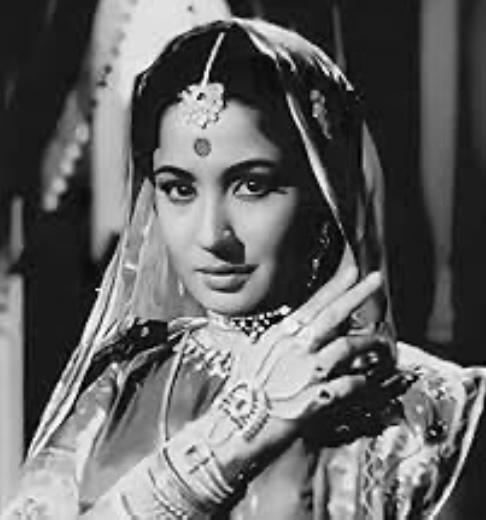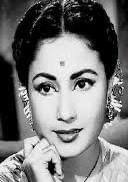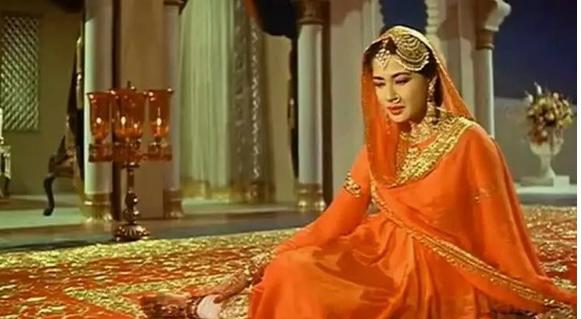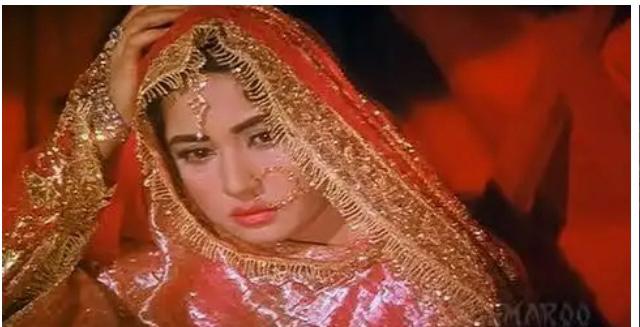Meena Kumari Celebrating the 92nd Birth Anniversary of a Cinematic and Poetic Legend
On August 1, 2025, as we commemorate the 92nd birth anniversary of Meena Kumari, the legendary actress and poet, we pay homage to a luminary whose artistry continues to illuminate the annals of Indian cinema and literature. Born Mahjabeen Bano, Meena Kumari’s life was a tapestry woven with threads of brilliance, melancholy, and resilience. Known as the “Tragedy Queen” and often hailed as the “Female Dilip Kumar,” her contributions to Hindi cinema remain unparalleled, her performances etched in the collective memory of audiences across generations. Beyond the silver screen, her soulful poetry under the pseudonym Naaz revealed a heart that spoke of love, loss, and longing with unmatched eloquence.
This tribute celebrates the multifaceted legacy of Meena Kumari, whose life and work continue to inspire and captivate.

A Star Born Amidst Struggles
Meena Kumari’s journey began on August 1, 1933, in a family of modest means. Her father, Master Ali Bux, a veteran of Parsi theatre and a poet himself, and her mother, Iqbal Begum, a former stage actress and dancer, introduced her to the world of performance. Born into a family of theatre artists, young Mahjabeen was thrust into the limelight at the tender age of four to support her family’s financial needs. Renamed “Baby Meena” by director Vijay Bhatt, she debuted in Leatherface (1939), earning Rs. 25 on her first day—a humble beginning for a girl destined to become a cinematic icon.
Her early years were marked by relentless work. The demands of acting interrupted her formal education, and Meena Kumari became self-taught, drawing knowledge from her surroundings and experiences. From Pooja (1940) to Lal Haveli (1944), her roles as a child artist showcased a natural flair that foreshadowed her future greatness. By 1946, with Bachchon Ka Khel, she transitioned to adult roles under the name Meena Kumari, setting the stage for a remarkable career that spanned 33 years and 92 films.
The Rise of the Tragedy Queen

Meena Kumari’s ascent to stardom was catalyzed by Vijay Bhatt’s Baiju Bawra (1952), a musical masterpiece that showcased her ability to embody complex emotions with grace and authenticity. The film’s success marked a turning point, establishing her as a leading lady capable of carrying a film on her delicate shoulders. Her portrayal of Gauri, a woman torn by love and duty, earned her the inaugural Filmfare Best Actress Award in 1954, cementing her status as a force in Indian cinema.
The 1950s and 1960s saw Meena Kumari deliver a string of unforgettable performances. In Parineeta (1953), she brought to life the poignant love story of Lalita, earning her a second consecutive Filmfare Award. Her collaboration with Dilip Kumar in Footpath (1953) showcased her ability to match the intensity of one of India’s greatest actors. Films like Dil Apna Aur Preet Parai (1960), Aarti (1962), and Dil Ek Mandir (1963) further solidified her reputation for portraying women who bore the weight of sacrifice and sorrow with ethereal dignity.
Her crowning achievement came with Sahib Bibi Aur Ghulam (1962), a cinematic gem where she played Chhoti Bahu, a woman consumed by unrequited love and despair. The role earned her universal acclaim and a historic sweep of the Best Actress nominations at the 10th Filmfare Awards, where she emerged victorious. Her final Filmfare win came in 1966 for Kaajal, a testament to her enduring brilliance. Meena Kumari’s ability to convey profound emotion through her expressive eyes and nuanced gestures earned her the moniker “Tragedy Queen,” a title that, while fitting, only partially captured her versatility.
The Timeless Elegance of Pakeezah

No tribute to Meena Kumari would be complete without mentioning Pakeezah (1972), a film that stands as a monument to her legacy. Directed by her husband, Kamal Amrohi, Pakeezah was a labor of love that took 16 years to complete. Meena Kumari’s portrayal of Sahibjaan, a courtesan yearning for love and redemption, is a masterclass in acting. Despite battling severe illness during its production, she delivered a performance that was both heart breaking and transcendent. Released just weeks before her untimely death, Pakeezah became a cultural phenomenon, its haunting melodies and poetic visuals immortalizing Meena Kumari’s artistry.
The Poetess Behind the Star: Naaz
Beyond her cinematic achievements, Meena Kumari was a gifted poet who wrote under the pseudonym Naaz. Her poetry, imbued with themes of love, solitude, and existential yearning, offered a glimpse into her inner world. As noted by film historian Philip Bounds and researcher Daisy Hasan, her verses served as a critique of the film industry that both elevated and confined her. Her collection Tanha Chand (Lonely Moon), compiled by Gulzar and published posthumously in 1972, remains a cherished work in Urdu literature. Her 1971 album I Write, I Recite, where she wrote, recited, and sang her nazms to the music of Mohammed Zahur Khayyam, showcased her multifaceted talent. A later compilation, Meena Kumari, the Poet: A Life Beyond Cinema (2014), further underscored her literary prowess.
Her poetry was more than an artistic outlet; it was a rebellion against the public persona that defined her. Lines like those in Tanha Chand reflect a soul grappling with fame’s burdens and personal sorrows, offering readers a poignant connection to the woman behind the icon.
A Life Marked by Triumph and Tragedy
Meena Kumari’s personal life was as dramatic as the roles she portrayed. At 18, she married filmmaker Kamal Amrohi in a secret nikah ceremony on February 14, 1952, despite his existing marriage and their significant age difference. The union, though initially passionate, was fraught with challenges, mirroring the tragic arcs of her onscreen characters. Her battle with alcoholism, exacerbated by the pressures of stardom and personal turmoil, led to a diagnosis of liver cirrhosis in 1968. Seeking treatment in London and Switzerland, she fought to reclaim her health, but her condition deteriorated. On March 31, 1972, just weeks after Pakeezah’s release, Meena Kumari passed away at the age of 38, leaving behind a legacy that continues to resonate.
An Enduring Legacy
Meena Kumari’s contributions to Indian cinema and literature are monumental. Her ability to portray the complexities of the human condition—love, sacrifice, and sorrow—set a benchmark for acting that remains unmatched. Her performances in films like Mere Apne (1971) and Gomti Ke Kinare (1972) showcased her versatility, proving she was more than just a tragedy queen. Her poetry, meanwhile, continues to inspire readers with its raw emotional depth.
As we celebrate her 92nd birth anniversary, Meena Kumari remains a symbol of resilience, talent, and grace. Her films are treasures of Indian cinema, her poetry a testament to her soul’s depth. She was, in every sense, the Cinderella of Indian cinema—a star who rose from humble beginnings to shine brightly, yet whose life was tinged with the melancholy she so masterfully portrayed. Her legacy endures in the hearts of those who watch her films, read her poetry, and marvel at the indomitable spirit of Mahjabeen Bano, the eternal Meena Kumari.
Hasnain Naqvi is a former member of the history faculty at St. Xavier’s College, Mumbai






